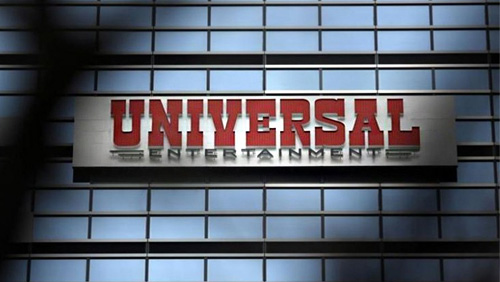An organizational shakeup is underway at Universal Entertainment, as part of the Japanese-listed gaming conglomerate’s bid to keep ousted chairman Kazuo Okada away from its casino-related businesses.
 In a regulatory filing, Universal announced that it has implemented an intra-group organizational realignment for it casino-related businesses, paving the way for the creation of a new company called Limited Liability Company ABC (LLCA).
In a regulatory filing, Universal announced that it has implemented an intra-group organizational realignment for it casino-related businesses, paving the way for the creation of a new company called Limited Liability Company ABC (LLCA).
LLCA is set to become the parent company of Universal’s three primary casino-related businesses, namely Tiger Resort Asia Limited, Aruze USA Inc., and a new entity called UE Technologies Inc.
Currently, Universal’s subsidiary WonderGraph Corp. holds 100 percent of LLCA. The company lists WonderGraph CORP as the operator of its casino resort business.
The creation of LLCA is part of the Japanese firm’s preparations to secure the structure to execute business “without being affected by a shareholder of the Company’s parent, who has been cited as violating governance and compliance,” according to Universal.
Although the company mentioned that the supposed shareholder is now a subject of an investigation by the Nevada Gaming Control Board (NGCB), Universal did not mention Okada’s name outright. The NGCB launched a probe against the Japanese casino mogul following his ouster from Universal in June 2017 for allegedly committing at least three fraudulent acts.
The Japanese-listed company said the organizational realignment is needed to acquire and maintain licenses for casino-related businesses in the United States, noting that, “in cases where unsuitable individuals are present among management or shareholders, there is a risk of being unable to acquire a license to begin with, or a license that is already held being invalidated.”
In 2017, Universal launched its probe of Okada and Yoshinao Negishi, former director and general manager of Universal’s administrative division, on suspicions that several directors of the company illegally released an estimated JPY2 billion ($17.74 million) from a subsidiary without going through proper internal decision-making process.
The gaming company concluded its three-month probe into the multi-million dollar illegal outflows in September, with investigators declaring that the Japanese billionaire had committed fraud on three separate occasions.
Since his ouster, Okada is facing several lawsuits in the U.S., the Philippines, and Hong Kong.